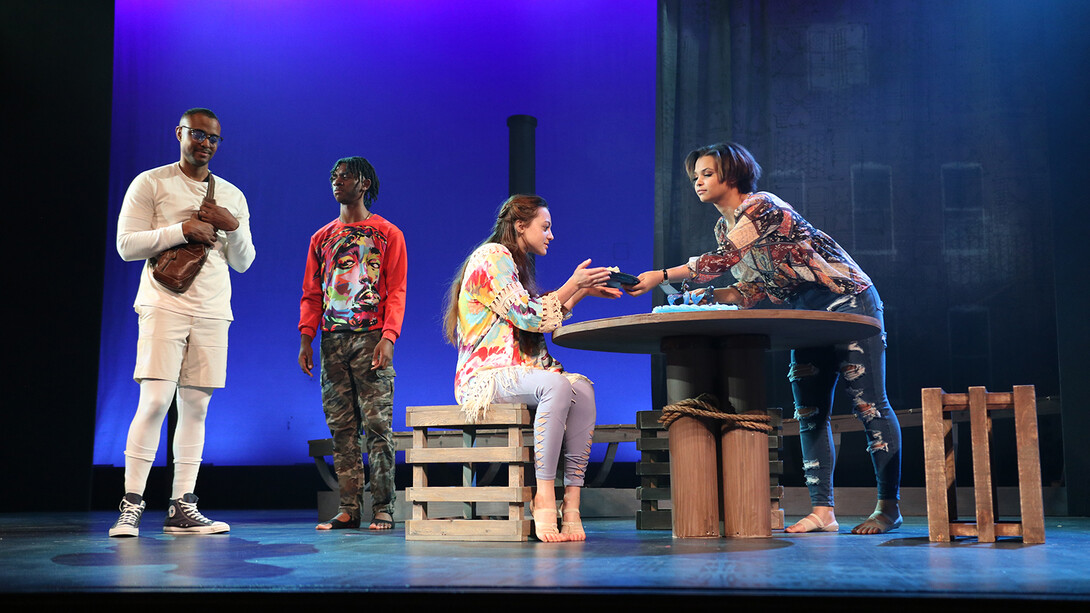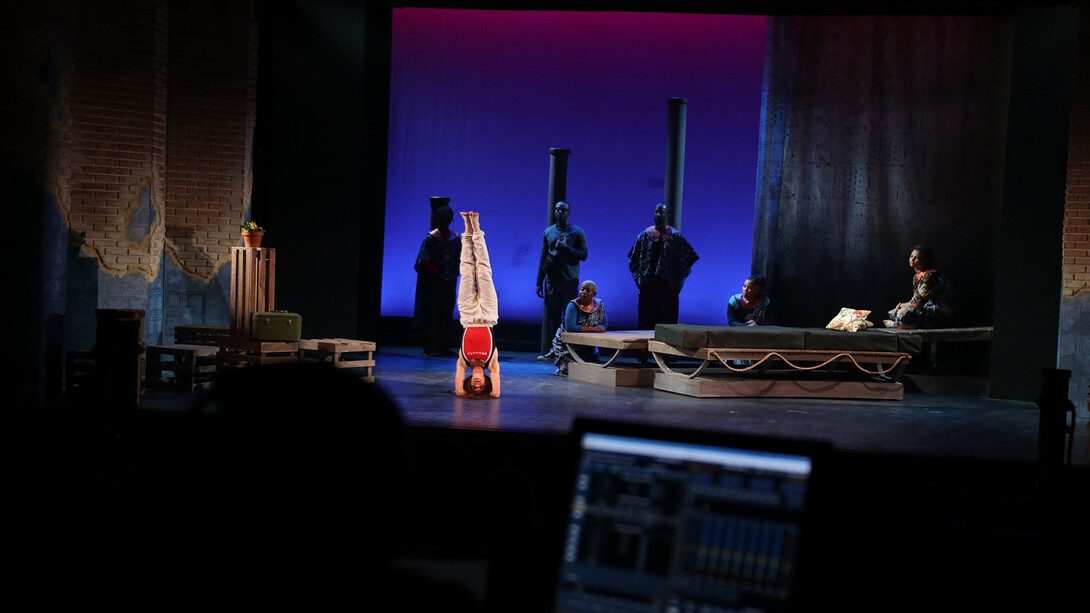
As the University of Nebraska–Lincoln moves forward with diversity planning, Nebraska Today is sitting down with college leaders to explore how inclusive excellence is being folded into day-to-day campus activities.
Since 2019, the university’s Office of Diversity and Inclusion has worked directly with institutional leaders in multiple ways, including through the Council of Inclusive Excellence and Diversity. Intended to connect colleges, primary campus units and ODI, the council is led by Nkenge Friday, assistant vice chancellor for strategic initiatives, with representation from across the institution.
The work of the council has been pivotal in guiding diversity, equity and inclusion plans university-wide. And, momentum realized through the council is being featured in this Q&A series.
Today, we’re continuing the series with the Hixson-Lied College of Fine and Performing Arts, talking with Chuck O’Connor, dean.
This question and answer series exploring campus diversity, equity and inclusion planning started prior to the State of Diversity address on Oct. 28 and continues into November. If your college, department or unit would like to be featured, contact Troy Fedderson at tfedderson2@unl.edu or 402-472-8515.
What is the state of diversity, equity and inclusion planning in your college/department/unit?
The state of diversity, equity and inclusion planning in the Hixson-Lied College of Fine and Performing Arts is quite broad. We are blessed in that we have a forward-facing presence, offering a variety of diverse voices through the many performances and exhibitions we offer to campus and the broader community.
We have a nationally-significant partnership with the St. Louis Black Rep Theatre. We launched our Mosaic music program last year, which offers diverse musical performances. Our School of Art, Art History and Design features a lot of guest artists who offer diverse perspectives through their background and individual creativity. And the Mary Riepma Ross Media Arts Center is an incredible resource for diversity in film, offering unique cinema experiences and diverse viewpoints to the community.
More specifically, we are developing a diversity framework for our college. Each of the five units within our college have diversity plans in place. We are bringing them together under a broad rubric that we will use to gauge success as the college moves forward. And, that rubric ties directly into the university’s N2025 plan.
Are elements of your DEI planning already being implemented?
We are definitely moving forward. We are focused on our students, developing programs that meet their needs. We are also looking at our curricula closely, at the sort of things that we teach and how we are teaching them. Students today want to be included and feel like they belong, so we are adjusting to meet those desires.
I think our next step is to expand programs that attract not only a more diverse student body, but broaden the scope and purview of what our students are learning.
Our college is also taking a look at retention of students, faculty and staff, as well as our work recruiting students of diverse backgrounds. We want to be certain that our college is equitable and a place where every Husker feels like they belong.

How are individuals within your college/department/unit helping advance inclusive excellence?
One big shift for us is our Student Success Center, which we launched in the last year. It’s a resource that offers a variety of services, including advising, mental health and financial assistance. It’s intended to help students overcome all sorts of obstacles that inhibit their ability to succeed.
Our secret sauce is our instructors and the amount of one-on-one mentoring we provide students. In each of our disciplines, our students are getting one-on-one teaching. Rehearsals are very intimate. Our instructors are working directly with students every step along the way, helping them play their songs, paint their picture. It’s hyper-individualized, which is the beauty of teaching the fine arts. It’s an individualized relationship that helps the students grow and succeed.
We also recognize that our students come to us from a variety of life experiences. In response to that, we are considering expanded diversity training that helps our instructors better connect with students. It’s something that would be especially useful in terms of the critiques we have in the classroom and practice rooms.
Is there a part of the plan that is most exciting to you and/or having a positive impact on the college?
I’m very excited about the role our colleges plays in expanding diversity, equity and inclusion on campus — both in terms of our strategic planning and the performances and exhibitions we offer to the community. That is where we can help make a direct impact and take a leading role in the broader discussion.
Next fall, we will expand our faculty to include an ethno-musicologist — a teacher and scholar who explores the ways diverse cultures are expressed through world music. That person will lead courses that are open to our entire campus community.
I’m also extremely proud and excited about the relationship we are developing with the St. Louis Black Rep. It’s a tremendous opportunity and one that will bring important and more diverse performances to our campus and community.
And, as always, I’m excited to see the work of our students. Their viewpoints are refreshing and quite often help us rethink the world we live in. This college is a place where everyone can find their place and express themselves to the world.







